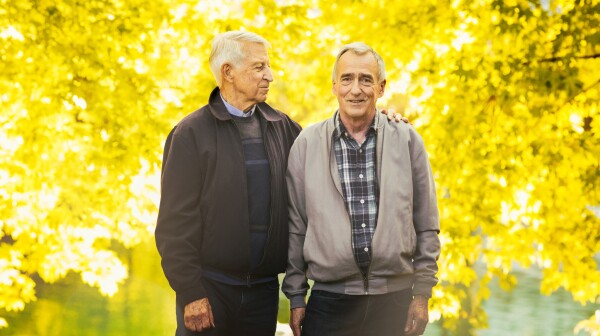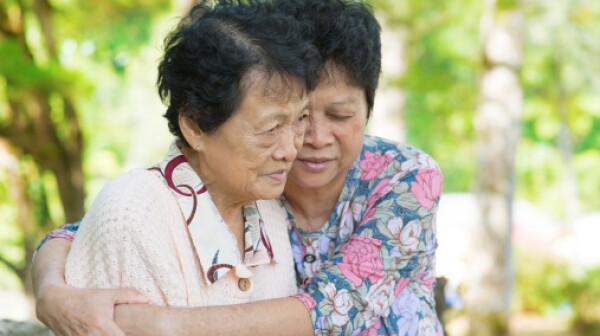AARP Eye Center
CLOSE ×
Search
Popular Searches
- right_container
- Health
- Money
- Work & Jobs
- Advocacy
- Social Security
- Medicare
- Caregiving
- Games
- Travel
- More...
- Entertainment & Style
- Family & Relationships
- Personal Tech
- Home & Living
- Auto
- Staying Sharp
- Podcasts
- Videos
The latest figures show more people are getting vaccinated, and the number of infections and deaths due to COVID-19 are also. That’s good news. But what about safety precautions?
June is LGBTQ Pride Month, and AARP is supporting Houston’s LGBTQ community with new podcasts focused on helping family caregivers.
Did you know that Asian Americans face different family caregiving challenges than other Americans? For these caregivers, there are barriers like language, traditions, and lack of resources that threaten to complicate their lives and the person they care for daily.
According to Feeding Texas, the Lone Star State is the 5th highest state for senior food insecurity. What does that mean? Well, that means that 11% of Texas seniors run the risk of going hungry.
A 2020 report revealed that half of the Asian American caregivers say the person they care for lives with them in their home, more common than non-Hispanic whites.
AARP Texas Director Tina Tran issued a statement in response to remarks on April 7 by House Speaker Dade Phelan regarding health care legislation.
As COVID-19 vaccines continue to roll out, caregivers who can’t find them may find themselves in stressful conditions, which can negatively affect their mental and physical well-being.
Members of the Texas Legislature’s Senate Business & Commerce Committee approved a version of Senate Bill 6, a liability-immunity measure that would gut needed protections for Texas nursing home residents. The version of the bill now headed to the full Senate will, if enacted, strip residents’ ability to hold long-term care facilities accountable for negligent care.
The fear of contracting COVID-19 can put a lot of stress on anyone, let alone someone caring for a loved one. How caregivers deal with this stress can be essential in the way they care for others.
The job of family caregiver is rewarding, but it is also one of the most challenging jobs you will ever have. Family caregivers can be any age.
Search AARP Texas
Connecting you to what matters most, like neighbors do. Find events, volunteer opportunities and more near you.
Sign Up & Stay Connected









































































